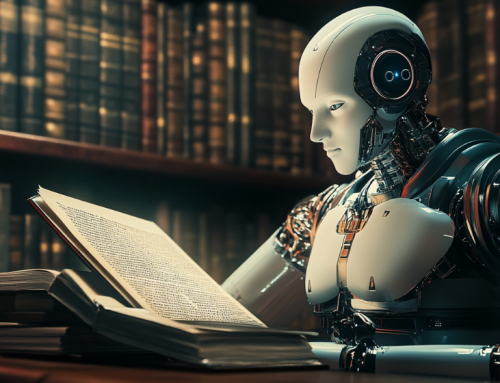AI Jesus Demonstrates Imperfect Ability to Generate New ‘Scripture’
Playing with algorithms can generate some fascinating results, from original art to unique advertising ideas and even essays and poetry.
One engineer’s attempt to fashion an artificial Jesus, however, turned out to be more like a creation of a false god.

Image from the cover of the digital book, “Digital Jesus: The Making of a New Christian Fundamentalist Community on the Internet (New and Alternative Religions Book 5)”
George Davila Durendal trained “AI Jesus” on the Bible using a Boltzmannian natural-language processing model. While some passages sound like they could be New Testament prophecy, most sound like gibberish.
“I present you AI Jesus. An artificial intelligence of my invention created from the King James Bible and nothing else,” wrote Durendal in a story on medium.com. “The algorithm is set up to tweet prophecies, like this one, which sounds like it could be authentic in the time of a pandemic:
“The Plague shall be the fathers in the world; and the same is my people, that he may be more abundant in the mouth of the LORD of hosts.”
AI Jesus to write passages on three topics: “The Plague,” “Caesar” and “The End of Days.” AI Jesus produced passages, totaling more than 30,000 words, most of them either sounding like apocalyptic predictions or, alternatively, not making much sense at all, at least from a Christian perspective, according to a story on techxplore.com.
“While the King James Bible has such flowing verses as ‘Be sober, be vigilant; because your adversary the devil, as a roaring lion, walketh about, seeking whom he may devour’ (Peter 5:8 ) and ‘Ask, and it shall be given you; seek, and ye shall find; knock, and it shall be opened unto you’ (Matthew 7:7), AI Jesus was somewhat less comprehendible,” the techxplore story says. ‘For I will fill the land which the Lord thy God hath given thee a time to eat the force of the Lord of hosts,’ AI Jesus suggested. ‘Power and godly, and have commanded the children of the world, and will set my face against thee, and thou shalt be called the people.’
The sensationalistic New York Post had a field day with the quotations, saying AI Jesus makes “doomsday” pronouncements:
“…some of it makes sense and reads like terrifying doomsday prophecies. One section reads: ‘O LORD of hosts, the God of Israel; When they saw the angel of the Lord above all the brethren which were in the wilderness and the soldiers of the prophets shall be ashamed of men.’ Another states: ‘And he said unto them, Depart ye for him and see the mouth of all the remission of death.’ And there’s also this concerning line: ‘that thou shouldest take him a great multitude of people and the spoil of the wicked shall be the same things that are in the midst of the sea and the sea shall be the father of the devils.’
Durendal wrote the code for AI Jesus about three years ago; GPT-3 was released in July.
“I like to describe this A.I. as locking a baby in a room with nothing but a Bible for 15 years,” Durendal wrote. “You then open up the room 15 years later and find that it’s learned to read, speak, and write using nothing but the Bible.”
Ironically, if Durendal had used GPT-3, he may have created a monster of sorts that sounded far more like the biblical scriptures people expect. But on the other hand, maybe not. Both algorithms lack the ability to weigh information and appropriately make assumptions on ideas and word choice, which leaves them incapable of making reasoned inferences. So it possesses the moral equivalency of a Magic 8-Ball.
The Christian Post interviewed Durendal and found his religious education lacking, making it even less likely that his programming would reflect Christian sentiments on the whole. According to the story, Durendal admitted he’s “not a particularly religious person but did attend a Catholic university, ‘which has made me a bit more cognizant of the influence of Christianity on Western philosophy.’ ”
What’s certain is that AI Jesus lacks the soul of the original, and that’s something that just can’t be replicated by an algorithm.
read more at express.co.uk







Leave A Comment